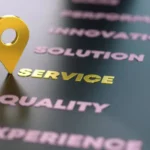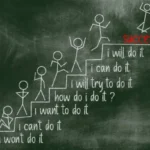In today’s cutthroat job landscape, having a degree isn’t enough anymore. What really sets you apart? The skills you bring to the table. Let’s dive into the best skills you need to not just survive—but thrive—in a competitive market.
Why Skills Matter More Than Ever
The Shift from Degrees to Skills
Once upon a time, a degree was your golden ticket. Now? Companies like Google and Tesla are hiring based on skills, not just diplomas. The modern job market rewards results, not credentials.
What Hiring Managers Are Really Looking For
When recruiters scan resumes, they’re searching for proof you can solve real-world problems. Can you lead a team? Analyze data? Adapt on the fly? If yes, you’re gold.
Soft Skills vs Hard Skills: What’s the Difference?
Understanding Soft Skills
Soft skills are your people skills—how you work with others, communicate, and manage stress. They’re intangible, but super powerful.
Understanding Hard Skills
Hard skills are teachable. Think coding, graphic design, or SEO. They’re technical abilities you can prove, like certifications or projects.
Communication Skills: The Foundation of Everything
Verbal and Written Skills
Can you express your ideas clearly? Can you write a solid email or report? If not, you might be great—but no one will know it.
Active Listening
This one’s underrated. Being a good listener builds trust. It helps in meetings, interviews, and even conflict resolution.
Adaptability and Flexibility
How to Pivot Quickly
Change is constant. You’ve got to embrace it, not fear it. The more flexible you are, the more irreplaceable you become.
Surviving in a Fast-Changing Workplace
Tech updates, remote work, economic shifts—flexibility helps you ride the waves while others drown in stress.
Emotional Intelligence (EQ)
What is EQ?
Emotional Intelligence is your ability to understand, manage, and express emotions effectively. It’s about being aware of your own feelings—and others’.
Why Employers Value EQ Over IQ
A high EQ means fewer conflicts, better teamwork, and leadership potential. That’s why LinkedIn listed it as a top job skill for years in a row.
Leadership and Management Skills
Leading Teams Effectively
Even if you’re not in management, leadership matters. Can you inspire, guide, and empower others? That’s true leadership.
Strategic Decision Making
Leaders don’t just react—they plan ahead and think big picture. Make decisions that align with company goals and watch your career soar.
Critical Thinking and Problem Solving
Thinking on Your Feet
Critical thinking helps you evaluate situations and come up with smart solutions, fast. It’s a must-have skill in pressure-filled environments.
Creative Problem-Solving Techniques
Sometimes the usual fix won’t work. Can you get creative and brainstorm innovative solutions? That’s a real differentiator.
Time Management and Productivity
Prioritizing Tasks
We’ve all got 24 hours. The winners know how to prioritize and knock out the most important stuff first.
Avoiding Burnout
Productivity isn’t about doing more. It’s about doing the right things efficiently—and staying sane while doing it.
Digital Literacy and Tech Savviness
Basic Tech Everyone Should Know
You don’t need to be a programmer. But you should know how to use tools like Google Workspace, Zoom, Trello, and Slack.
Learning New Tools Fast
The real skill? Being a fast learner. Tech evolves constantly. Those who keep up win.
Data Analysis and Data-Driven Thinking
Why Data is the New Oil
In business, data powers decisions. If you can read and interpret data, you’re not guessing—you’re winning.
Tools That Make Data Easy
Excel, Google Analytics, Tableau—get comfortable with at least one. It’ll give you an edge, no matter your field.
Networking and Relationship Building
Internal and External Networking
Who you know really does matter. Build relationships within and outside your company.
Building Social Capital
Help others, give value, and connect genuinely. That’s how you build a strong personal brand and network.
Project Management
Tools and Techniques
Project management isn’t just for PMs. If you manage tasks or timelines, tools like Asana, Monday.com, and Notion are game-changers.
How to Manage Deadlines and Deliverables
The trick? Break big tasks into small chunks, use deadlines wisely, and track progress regularly.
Sales and Persuasion
Selling Ideas, Not Just Products
Even if you’re not in sales, you’re always selling—your ideas, your vision, yourself.
Negotiation Tactics That Work
Learn to negotiate like a pro. Be firm but respectful. Understand what others want. Aim for win-win deals.
Continuous Learning and Self-Development
Embracing Lifelong Learning
Your learning shouldn’t stop after school. Read, take courses, try new things. Grow or get left behind.
Building a Personal Learning Strategy
Pick one skill each month. Watch YouTube tutorials, join Coursera, use LinkedIn Learning. Be intentional about upskilling.
How to Showcase These Skills to Employers
Building a Killer Resume
Tailor your resume to the job. Highlight relevant skills with examples. Use numbers to prove impact.
Interview Tips That Highlight Your Value
Practice storytelling. Use the STAR method (Situation, Task, Action, Result). Confidence + clarity = success.
Conclusion: The Skill-Driven Career Path
The job market is evolving fast. Degrees alone won’t cut it. Your skills are your currency. Invest in them, sharpen them, and showcase them. Whether you’re just starting out or pivoting mid-career, the right skills can unlock amazing opportunities.
❓FAQs
1. What are the top three most in-demand skills in 2025?
Communication, adaptability, and digital literacy are topping charts across industries.
2. Can I learn career-boosting skills for free?
Absolutely! Platforms like edX, Khan Academy, and YouTube offer high-quality content.
3. Are soft skills more important than hard skills?
In many cases, yes. Soft skills like empathy, communication, and adaptability often determine how well you work in teams and lead others.
4. How can I prove my skills without experience?
Create a portfolio of projects, volunteer, intern, or take freelance gigs to build credibility.
5. What’s the easiest skill to learn that gives the fastest career boost?
Time management. It’s simple to start and has immediate impact on your productivity and professionalism.





